Data-Driven Digital Transformation in Retail Industry - Key Drivers

In the last two decades, the retail sector has seen a consistently increasing disruption due to e-commerce. The technology-backed, customer-focused retail e-commerce have opened new markets and operating models for retailers. It has also brought a new way to capture and utilize customer data to deliver better experiences, products, and pricing for increased sales performance. However, e-commerce has limitations when it comes to products and services delivered. On-site retail, on the other hand, still enjoys the benefits of being an end-to-end provider.
Enterprise retailers have much more to gain with the technology as they have a wider reach, bigger customer base, and higher scope for improvements. Data analysis with an intelligent data foundation has an increasing impact on the economic model of all industries. Retail trade is probably the industry that has been most influenced by these practices. However, many retailers fail to achieve significant results through data and digital technologies. This is primarily due to their siloed operations, complex management systems, and limited use of technology.
To overcome these challenges, enterprise retailers will have to implement technologies to enable the power of data. It is a progressive approach to handling enterprise data using:
- Intelligent Data foundation: Enabling data management on an enterprise level to collect, clean, and centralize data on customers, products, suppliers and operations for enabling the business.
- DataHub platform: Enable data management through a domain-based design to enable data domain APIs compliant with ARTS standards for secure and controlled access.
- API Enabled Market Place: With Data Hub in place, APIs can be enabled directly from DataHub towards a marketplace, partner, supplier & other necessary integrations
- AI, Analytics, and emerging technologies: Enabling fast, automated and real-time analytics with AI and integrating emerging technologies for collecting more data and/or automating processes, predictive & preventive maintenance.
Digital technologies are highly progressive if used correctly because of their potential to generate usable data. Capturing and analyzing enterprise data requires a shift in perspective using digital technology. Instead of using technology as an added value, enterprises must consider it a value extractor. This can be achieved through data technologies and their use cases as follows:
Data Hub, API and Analytics – Why catching the train now is crucial
Data integrations that connect, standardize, and centralize data collection are the first step to transforming commerce in retail. The collected data should encompass all possible data sources like customers, products, sales, suppliers, operations, supply chain, etc. It is crucial to collect as much data as possible for analytics and, whenever possible, expand the scope of data generation using other technologies like IoT, blockchain, AR/VR, etc.
SLK’s DataHub platform is an end-to-end solution for centralizing and utilizing data to improve your business. It approaches data and its collection from multiple angles to provide you with a 720-degree view of your business. This platform allows you to seamlessly integrate applications/data while ensuring data integrity and security. It also enables Data Pipeline automation to move into the cloud faster.
With centralized data, you can improve your business through:
- Predictive & preventive analytics for demand forecasting, machinery maintenance, supply chain, and inventory management, etc.
- Customer, Supplier, and Commodity data analytics to innovate service offerings, personalized marketing, omnichannel delivery, maintain inventory, high return offerings, etc.
- Operational data to optimize workflows and management, decision-making, and greater operational visibility across channels.
- Multi-faceted analytics to discover hidden inefficiencies and losses, cost sinks, areas of improvement, etc.
The overarching power of data analytics cannot be undermined. It can be performed in many ways to gain insights into multi-disciplinary aspects of the business at various scales. Retail analytics provides a holistic understanding of what consumers want at each stage of their customer journey. This allows Brick and Mortar stores to solve one of their main problems: creating value from extremely disparate data sources.
Customer-Centric Business Strategy
While the business can achieve high improvements in the bottom line through optimization, top-line growth is always the primary target for all enterprises. Retailers often face challenges related to delivering a superior customer experience throughout touchpoints. Data and analytics enable retailers to deliver:
- Better pricing and product mix to their customers in different demographics.
- Extreme Personalized communications, offers, and marketing on all channels.
- Helps brick-and-mortar stores to win back their market share
- Other services and features for the broader audience at a different scale.
Using customer engagement data, costly decisions like implementing other technologies, organizing events, rolling out programs, etc., can also be made confidently. Data enables enterprise retailers to create highly customer-centric engagements and delight customers in different ways while increasing sales and investment returns.
Power of Data Science, AI and Emerging Technologies
Some of the analytics mentioned above are difficult to perform. However, all of it can be easily automated using Data Science encompassing AI technologies. Machine learning based systems can perform various analytics in real-time and provide direct insights or autonomously execute the necessary actions. This is especially powerful with large amounts of data and monitoring of activities. Enterprise retailers can enable AI analytics to guide strategy and decisions from the smallest to the largest scale without added costs.
Emerging technologies like IoT, AR/VR, Blockchain, etc. can also be implemented with the data systems. They can either add to the data repositories and/or make use of them to deliver services and features. Almost all technological implementations generate usable data to enhance your business and customer delivery further.
SLK is a technology partner with a wide range of experience in intelligent infrastructure, IIOT, Edge analytics, data analytics, and AI-enabled technologies. Our business-centric solutions enable our customers to achieve their goals faster and easier. We provide end-to-end solutions for all Retail technology needs while adding value to the management and operations of our clients.
Data standardization and capture is a transformative foundation for enterprise retailers to build a highly efficient organization and deliver the maximum value to their customers. Retailers can gain a lot of bottom-line efficiencies using data analytics and related data technologies. Top line gains are also possible with the right mix of implementations and analytics-based solutions. Data transformation is a progressive journey and should be approached with commitment and planned approach. Once implemented, it will deliver results beyond the original scope because of its future-readiness and innovative possibilities increasing by the day.






